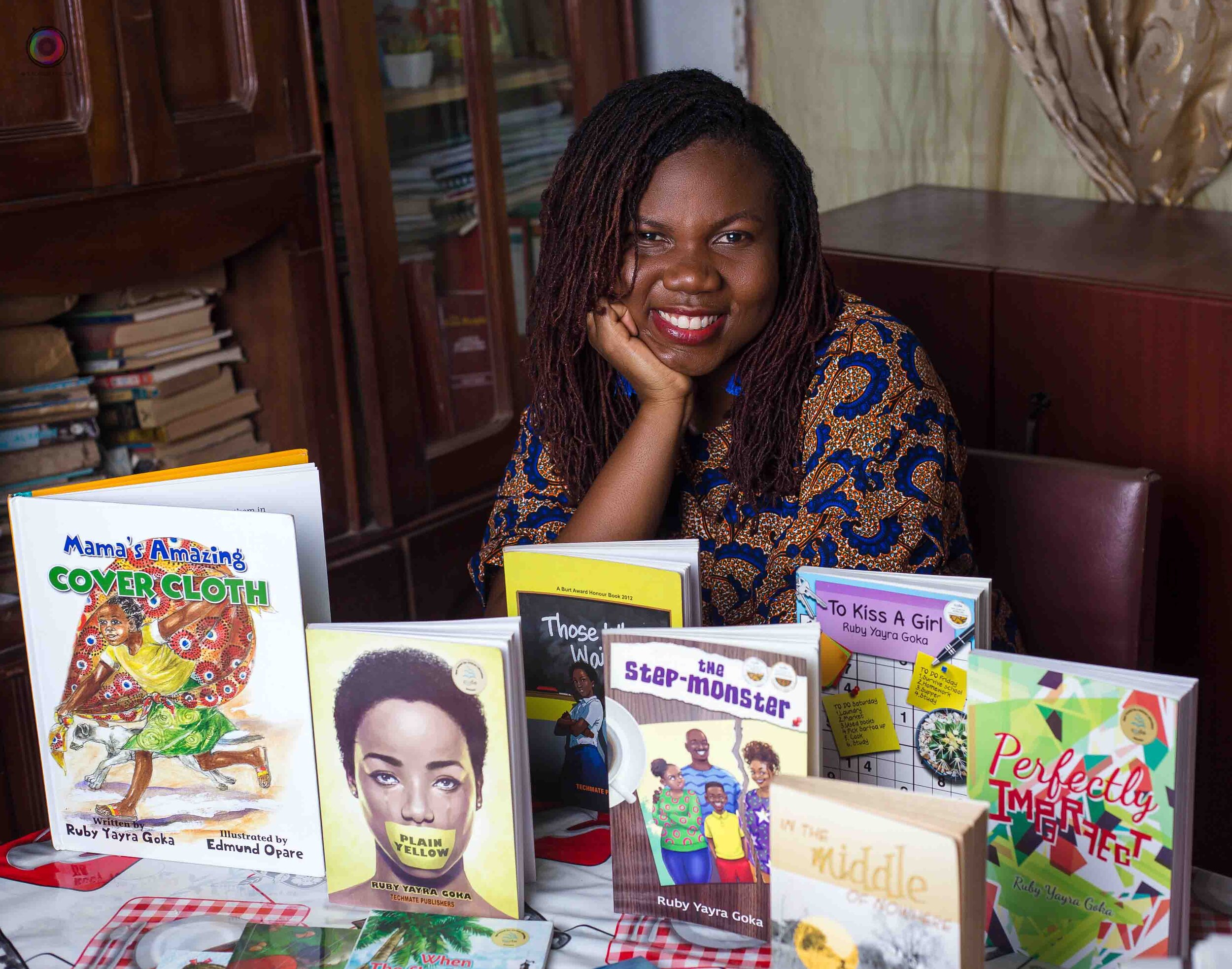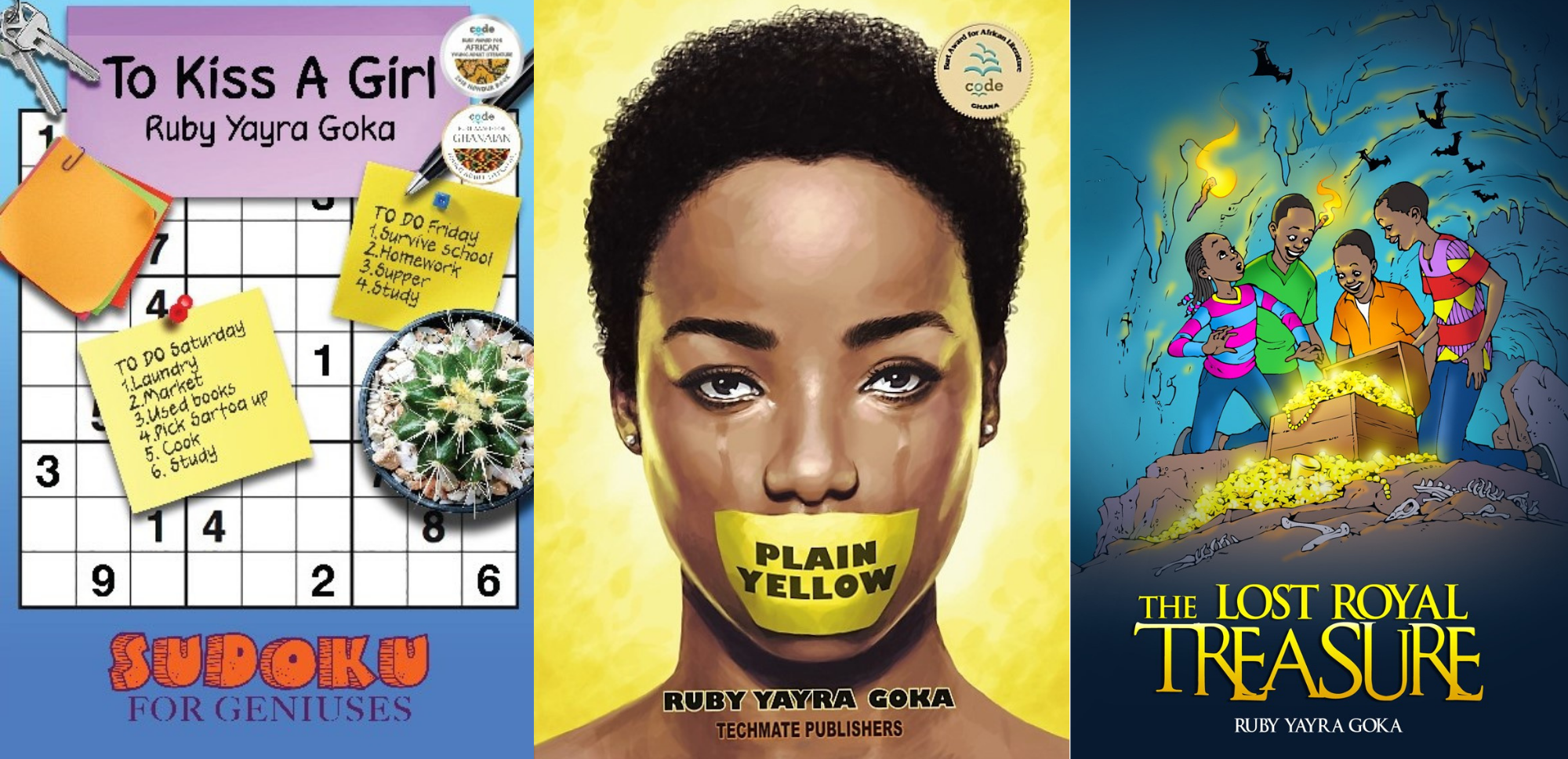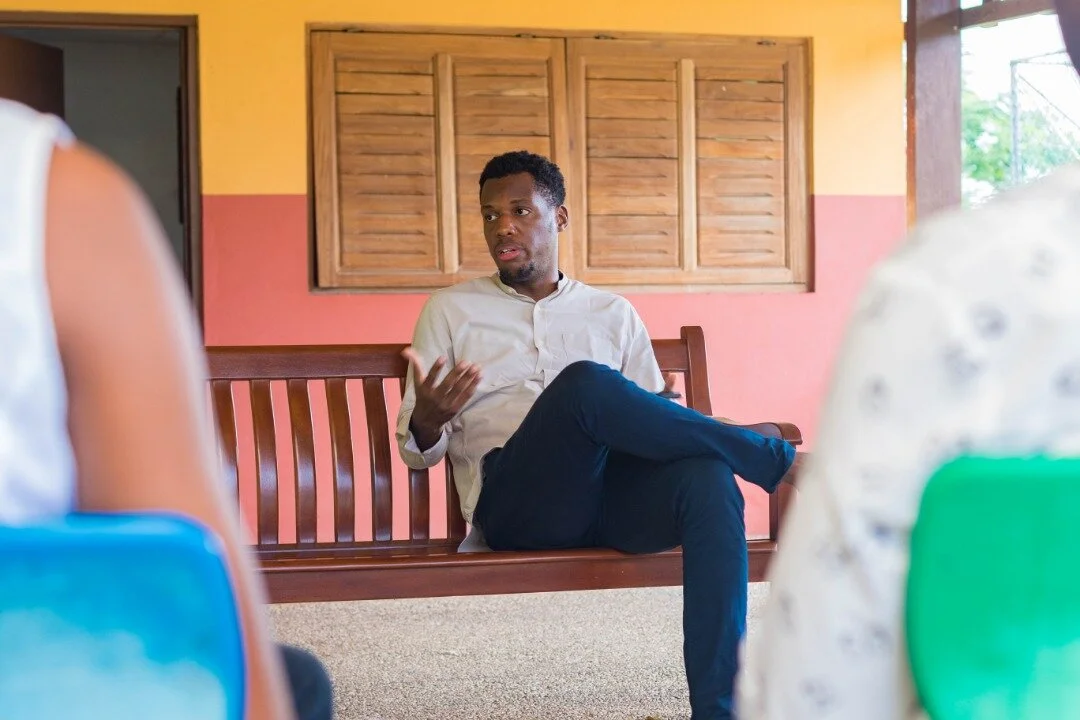In conversation with Ruby Yayra Goka
“I want to empower young girls and let them know that they can be what they want to be. I want them to see themselves reflected in the pages of books.”
- Ruby Yayra Goka
Ruby Yayra Goka, Image: Jonathan Kwaffo
Ruby Yayra Goka is an author and a dentist. She has penned 17 published novels, a number of which have won prizes including the Burt Award for African Literature. Ruby strongly believes in the power of storytelling and aims through her writing to provide strong, empowering role models for young girls, especially young black girls.
You can find out more about Ruby and her published novels on her website here.
Hi Ruby! It’s lovely to meet you, can you tell our readers a bit more about yourself?
I’m a dentist and a writer. I’ve lived in Ghana most of my life. My dad was a diplomat, so I spent part of my childhood in Ethiopia. I’ve loved books my entire life, so writing was a logical progression from reading for me.
I really love what I do. I have a day job (dentistry) and I call writing my night job. My working hours are from 9am to 4pm so when I’m done with dentistry, the rest of the day is mine. I don’t have a fixed writing schedule, I just fit writing in when I can, and I don’t have strict word count goals when I write.
How do you find the difference between the two, as dentistry is obviously quite scientific and then writing is so creative? How do you find balancing those two parts of yourself?
I began writing before I even started dentistry. When I was at medical school, I worked on the student newsletter and then I became the Editor-in-Chief. I published a number of articles and stories through that platform. So, I’ve always done writing in some form.
I am currently working on my dissertation and in scientific writing, there are so many rules to follow. You have to reference almost everything. In creative writing, you’re free to do as you like for the development of the story. That’s the best thing about creative writing.
What themes do you like to explore in your writing?
A lot of my writing is basically about female empowerment. I started off writing for adults, but now I am more into young adult literature. I can pretty much do what I want but I am finding that a lot of my characters end up being female. In my part of the world that is quite a big thing as I want to empower young girls and let them know that they can be whatever they want to be. I want them to see themselves reflected in the pages of books. I hope that through my books, young girls will be able to identify with my characters and will know that they can achieve more than what they’ve been led to believe is the norm.
Books by Ruby Yayra Goka, Image: Jonathan Kwaffo
There has been a huge surge in popularity of Nigerian authors in the UK, but are there any other Ghanaian authors that we should be on the lookout for?
There are so many! For young adult fiction, one person that I love reading is Elizabeth-Irene Baitie. Both of us have won the Burt Award and I absolutely love her books. Her characters pop off the page.
Darkowaa Adu-Kofi, a book blogger, put together a list of some contemporary Ghanaian authors some time back and I’m happy to share those with you and your readers:
Ghanaian writers – African Book Addict!
GH at 60 | Our Writers & Their Books (part 2)
GH at 60 | Our Writers & Their Books (part 3 – finale)
I’m going to put you on the spot now, do you have a favourite author or a favourite book – or both?
Ahhh, I don’t have children, but this is like someone asking me to pick my favourite child. I have a whole list of books that I love. The Great Ponds by Elechi Amadi is one of my favourites. I’ve gone back to it time and time again. The Jasmine Candle by Christine Botchwey was one of the first Ghanaian young adult books that I read when I was younger, and I loved it too.
When I was growing up there wasn’t really a young adult African genre, or at least I wasn’t exposed to it, I grew up on Enid Blyton, Nancy Drew, and Sweet Valley. So, my first young adult African book was The Jasmine Candle, and I was so much in awe of the author who also happens to be a dentist. It was the first time I had seen a young African girl in a book, it was the first time I saw our foods being described, so much so that you could actually taste and smell them. I realised that yeah, we can write about ourselves!
My sister studied Literature, so I actually ended up reading a lot of her books that she studied. The Count of Monte Cristo by Alexandre Dumas, Tess of the D’Urbervilles and The Mayor of Casterbridge by Thomas Hardy are some of my favourites. Things Fall Apart by Chinua Achebe, I think that’s on everyone’s list, as well as The Gods Are Not to Blame by Ola Rotimi. Anything by Max Lucado, Francine Rivers, Jane Austen, and Tami Hoag will also make it onto the list.
How did you first get published? What was the process like?
During my training, we were taught how to screen for breast cancer. After dental school, I discovered a lump in my left breast which turned out to be benign. I was in my twenties at the time and I just kept thinking, “What if it had been malignant?”. My “what ifs” evolved into a story. I wrote my very first book, Disfigured, which I gave out to my friends and family to read.
A year later, a Christian group invited me to an outreach project in a rural community in Ghana that did not have a dentist. It was a real eye opener to me. The “what-ifs” began again. I was a newly trained dentist and I asked myself, “What if I had been posted to that community?” I didn’t think I would have accepted the posting because it was so different and so far away from anything that I knew. That whole experience was what led to me writing my second book, In the Middle of Nowhere. I sent the completed manuscript to some friends and family and also to a few publishers.
My big break came in 2010. There was a writing competition (The Burt Award for African Literature) for stories for young adults. I thought because I had written two adult manuscripts, I could easily write a young adult book. I thought writing for a younger audience would be so much simpler, so I kept putting it off until two weeks before the deadline when I finally took some time off work and began writing. My entire story was five pages long, but to enter the competition you had to submit 80 pages. It was then I realised how hard authors for children and young adults work. They make books for children look so simple but a lot of work goes into it. I did submit the 80-page manuscript and eventually came out third in the competition. The Mystery of the Haunted House became my first published book.
This opened doors for me in the publishing world. Different publishing houses were now willing to work with me. The competition ran for seven years, and I was fortunate enough to have a book place in the top three, each year that the competition ran.
Image (L-R): To Kiss A Girl, Plain Yellow, The Lost Royal Treasure (2011 Burt Award Winner)
I assume as you are the author to 17 published novels that you are well versed in the intricacies of the publishing industry. What do you think are the major problems, if any, with the industry in Ghana?
As I said earlier, when I was growing up there really wasn’t much young adult fiction. We didn’t really have much fiction of any kind. But that is changing, and I am happy to see it change. You can now walk into a bookshop and you will be able to find books by Ghanaian authors and other African authors and that wouldn’t have happened in the past.
Our book industry would thrive more if the government got involved and pushed for reading programmes or having supplementary reading lists in schools. These initiatives would push the publishing industry further.
Do you have any advice for young people who want to get into writing?
I think the most important message I could give is to read the types of books that you would like to write. What was the last successful published book in that genre? Or for that age group? If you don’t know what’s out there, or what’s popular, or what is selling well then how will you be able to write something in that area? Do your research first and read, read, read.
Do you think you’ll ever give up dentistry and go full time with writing?
If I got a really good book deal, I maybe would. Actually, it’s not a maybe, I definitely would. I would love a house by the ocean where all I’d do is wake up, stare at the ocean, drink coconuts, and write.
That is the dream. Does that mean you think you will stay in Ghana? Or do you have any plans to live anywhere else?
Even if I had other opportunities, I think I would still be based in Ghana. Apart from writing I have a number of projects that I work on with school children. I still want to do these types of projects and encourage younger writers. So, I would probably split my time between Ghana and another place if that opportunity ever presented itself.
Obviously, you’re probably going to be a tiny bit biased, but what is it that you love so much about Ghana?
I think for me, it’s just that sense of belonging. Every time you travel, and being a black person, you always feel like you stand out. But when I’m back home or in another African country, I don’t have to pay attention to how I behave, or which part of town I go to, or how I speak to people. I can just be me. But when you’re outside of Ghana there is always that sense of having to be careful, not taking risks, having to always be on guard. There is always that sense of not belonging.
What’s next for you then? Any big plans for your next book?
Two of my young adult books are currently out. A Blast to the Past is the first book in a series involving three children and their dog. They get transported to different time eras and take part in major historical feats. The second is Girl on Fire and tells the story about a girl who persisted in the face of opposition. Both are available via my website: www.rubygoka.com
Illustrations are being done for my next picture book, titled Sela Gets A Haircut. It’s based loosely on my nephew and I can’t wait for it to come out.
It was so lovely chatting with you, Ruby! I can’t wait to see what else you get up to in the future.
Click here for more interviews from our Ghana Culture Series.
Interview by Mollie Cohen






